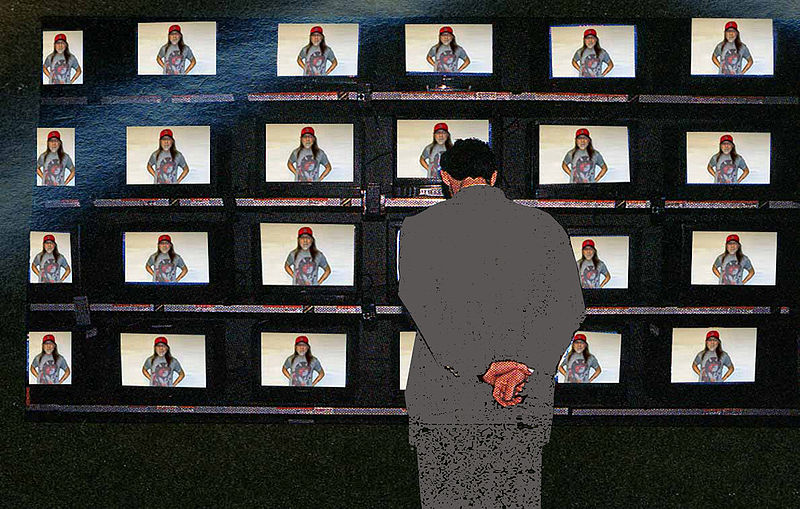From Gary Wolf’s 1993 Wired article about Marshall McLuhan, “The Wisdom of Saint Marshall, the Holy Fool”:
McLuhan did not want to live in the global village. The prospect frightened him. Print culture had produced rational man, in whom vision was the dominant sense. Print man lived in a world that was secular rather than sacred, specialized rather than holistic.
But when information travels at electronic speeds, the linear clarity of the print age is replaced by a feeling of “all-at-onceness.” Everything everywhere happens simultaneously. There is no clear order or sequence. This sudden collapse of space into a single unified field ‘dethrones the visual sense.’ This is what the global village means: we are all within reach of a single voice or the sound of tribal drums. For McLuhan, this future held a profound risk of mass terror and sudden panic.
The current idea of a global village as a place of universal harmony and industrious basket-weaving is a tourist’s fantasy. McLuhan gave in to the intoxication of this hope for a few years in the early ’60s, and it is evident throughout Understanding Media: The Extensions of Man, his most optimistic work. In that book, McLuhan sings of the furthest reaches of electronic culture, when computer technology has replaced language with instant nonverbal communication. He compares this mystical unification of humanity to the Christian Pentecost. But McLuhan soon realized that before the Pentecost comes suffering and crucifixion, and while we are all waiting for the Holy Ghost to descend, Jerusalem is likely to be scary as hell.•
Tags: Gary Wolf, Marshall McLuhan

